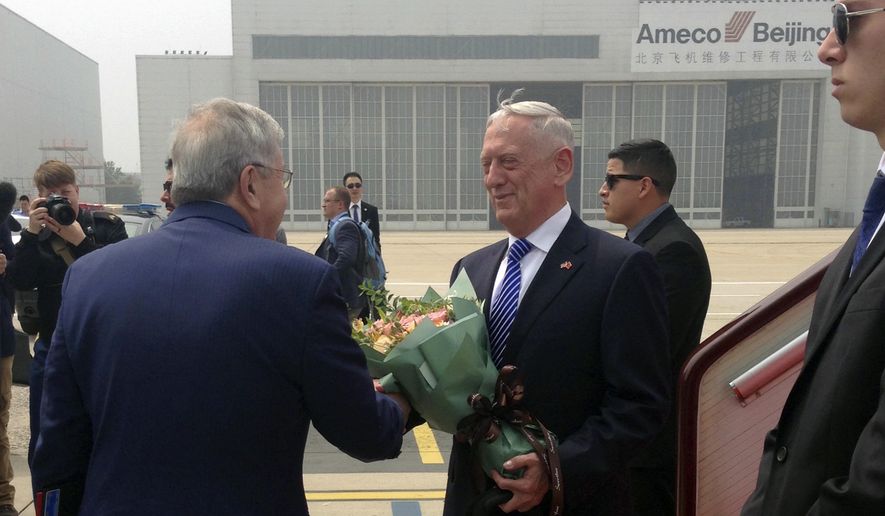
BEIJING (AP) - U.S. Defense Secretary Jim Mattis[1] arrived in Beijing[2] on Tuesday for meetings with senior Chinese leaders, as the world waits for indications that North Korea is taking steps to dismantle its nuclear program following the summit between President Donald Trump[3] and North Korean leader Kim Jong Un.
The North Korean negotiations are expected to be a primary discussion during Mattis[4]‘ meetings in China[5]. Beijing[6] is considered a key influencer on Pyongyang and Chinese President Xi Jinping said last week that China[7] would “as always play a constructive role” in the process.
Kim was in Beijing[8] for a two-day visit last week and met with Xi. The Chinese president said at the time that he hoped that Pyongyang and Washington could fully implement the outcome of the summit earlier this month between Trump[9] and Kim.
Defense officials believe China[10] can exert crucial sway on North Korea, moving negotiations forward because Beijing[11] also wants a denuclearized Korean Peninsula.
One senior U.S. official said it will soon be clear whether North Korea is serious about implementing the summit agreement. The U.S. will present North Korea with a series of requests and a specific timeline for various phases of the denuclearization, said the official, who spoke on condition of anonymity to discuss internal communications. The official did not provide details on what the requests would be or what the timeline would look like.
How Pyongyang responds, said the official, will indicate whether Kim is operating in good faith.
Mattis[12] is expected to meet with a range of officials during his visit here, including U.S. diplomats and senior Chinese military leaders.
It’s unclear, however, how much Mattis[13]‘ progress with the Chinese leaders will be affected by the roiling trade war between the U.S. and China[14].
Trump[15] has already imposed tariffs of 25 percent on imported steel and 10 percent on aluminum.
And next week the United States is to start taxing $34 billion in Chinese goods, and later add tariffs on an additional $16 billion in goods. Beijing[16] has vowed to immediately retaliate with its own tariffs on U.S. soybeans and other farm products in a direct shot at Trump[17]’s supporters in America’s heartland.Copyright © 2018 The Washington Times, LLC. ...

